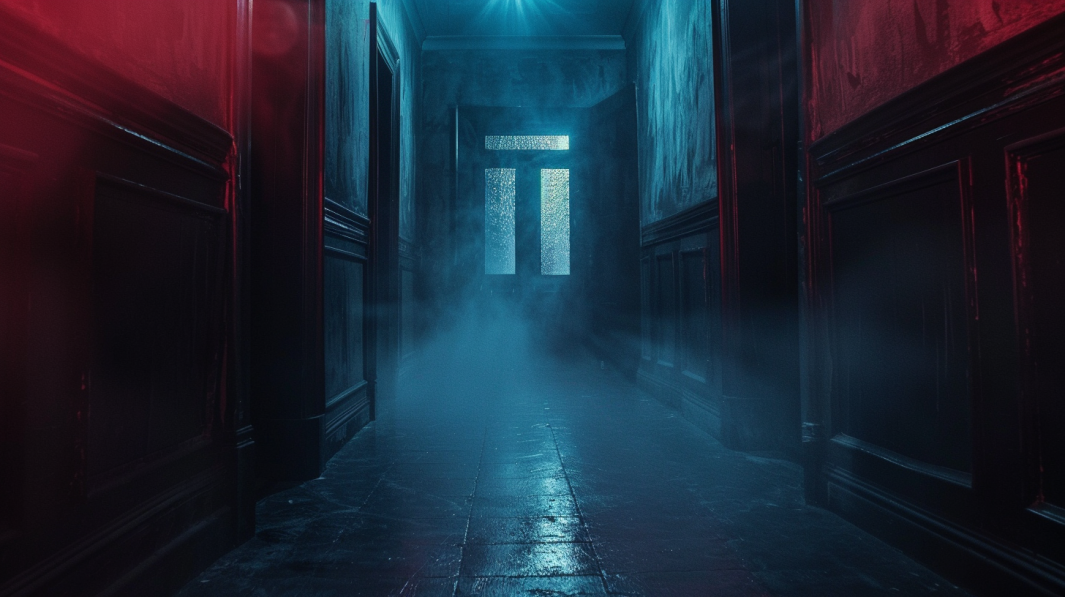Banned horror movies are rare but occur when films are too disturbing or offensive for most viewers. Horror films usually offer a safe way to explore various fears, but some have crossed the line, leading to bans in different countries.
The horror genre includes many subgenres and styles, yet some projects have pushed boundaries too far, becoming deeply unsettling.
From realistic horror to films designed to shock, the genre often sparks controversy. While banning movies can seem extreme, some cases are justified due to their disturbing themes.
Given the content these films address, it’s not surprising that some horror movies face bans. Regardless of the filmmakers’ intentions, these movies highlight the profound impact films can have on audiences worldwide.
10. The Bunny Game (2010): Banned in the UK
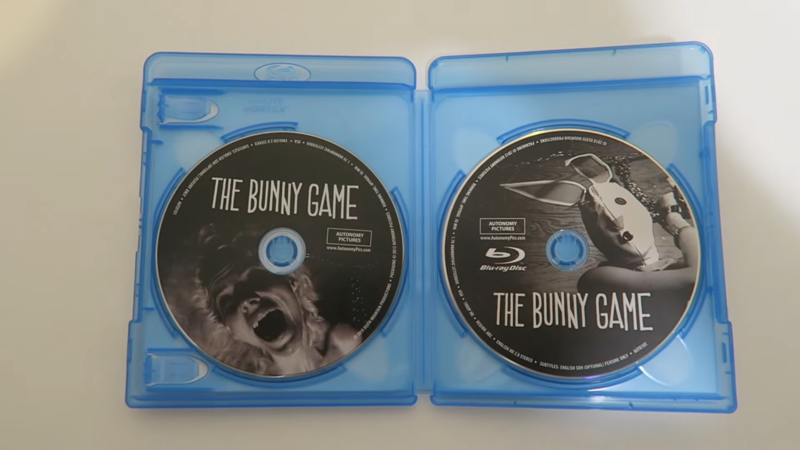
- Unavailable for Streaming
“The Bunny Game,” directed by Adam Rehmeier and released in 2010, is a low-budget avant-garde horror film that has gained infamy. The storyline centers on Bunny, a sex worker struggling with drug addiction, portrayed by Rodleen Getsic. Bunny is kidnapped by a truck driver who inflicts extreme torture and sexual abuse on her, under the guise of twisted “games.”
The film’s graphic and unsettling content led to its ban in the United Kingdom by the British Board of Film Classification, deeming it “unacceptable to the public.” Despite its controversial nature, “The Bunny Game” received recognition, winning several awards at the 2011 PollyGrind Film Festival.
9. Salò, or the 120 Days of Sodom (1975): Banned in Italy, Canada, Australia, & New Zealand
- Unavailable for Streaming
“Salò, or the 120 Days of Sodom,” directed by Pier Paolo Pasolini and released in 1975, is a notorious film that gained fame primarily through its bans. Inspired by Dante’s Divine Comedy, the movie is divided into four segments.
It tells the story of four corrupt, wealthy Italian libertines in the fascist Republic of Salò who kidnap 18 teenagers and subject them to four months of extreme violence, sadism, and psychological and sexual torture.
The film had a brief theatrical run in Italy before being banned. Its graphic portrayal of torture, sexual abuse, and murder of youths led to bans in several countries, including Canada, Australia, and New Zealand, where it remains prohibited.
8. Traces of Death (1993): Banned in the UK
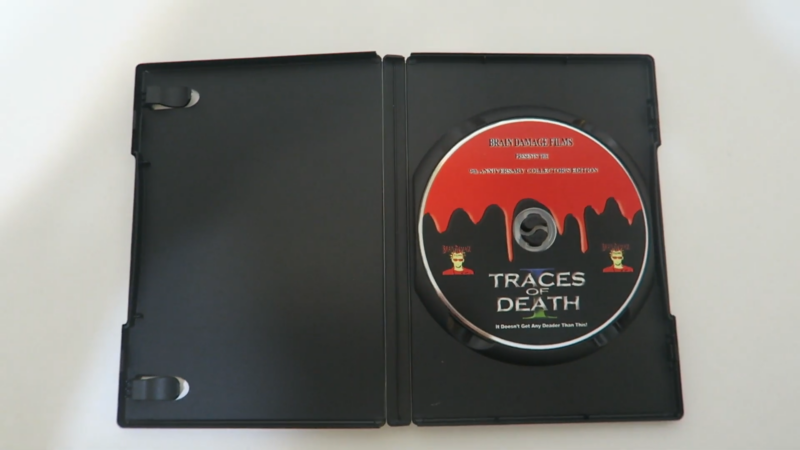
- Unavailable for Streaming
“Traces of Death,” a low-budget mondo shockumentary released in 1993, is infamous for its graphic content. Unlike its predecessor, the cult fake snuff film “Faces of Death,” this film features real footage of deaths and violent scenes.
Due to its explicit nature, “Traces of Death” was banned in the UK, with the British Board of Film Classification stating it had no “journalistic, educational, or other justifying context for the images shown.”
The film and its sequels have also faced severe restrictions in Australia. Customs authorities have confiscated them, citing the country’s regulations that they “offend against the standards of morality, decency, and propriety generally accepted by reasonable adults to the extent that they should not be imported” (via Australian Government).
7. Possession (1981): Banned in the UK
- Release Date: May 25, 1981
- Director: Andrzej Żuławski
- Cast: Isabelle Adjani, Sam Neill, Heinz Bennent
- Runtime: 124 Minutes
- Stream now on Shudder
Why was Possession banned? Andrzej Żuławski’s “Possession” tells the story of Mark (Sam Neill), a spy, and his wife Anna (Isabelle Adjani), whose divorce spirals into a surreal and disturbing ordeal filled with intense body horror. The film is known for its unsettling visuals and Adjani’s emotionally charged performance, particularly in the infamous subway miscarriage scene.
The unconventional narrative and graphic content led to bans and censorship in several countries, including the UK. Despite the initial controversy, “Possession” has since garnered a cult following, praised for its unique approach to horror and the powerful performances of its cast.
6. August Underground (2001): Banned in Austria
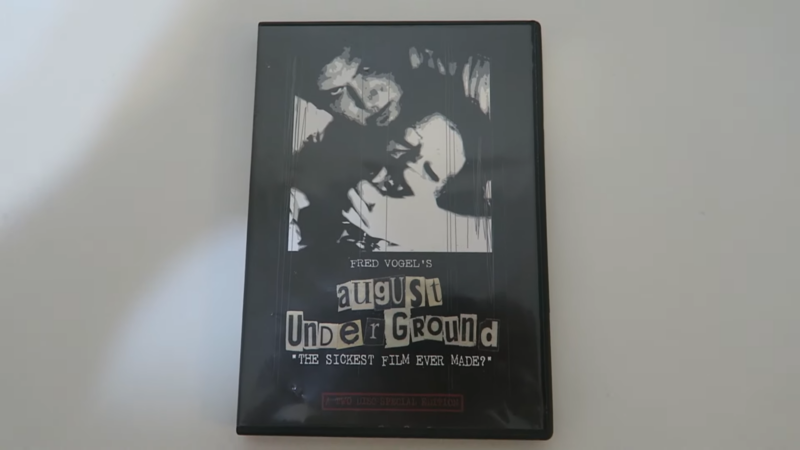
- Rent now on Vudu
“August Underground,” directed by Fred Vogel, is a controversial found-footage horror film in which Vogel also stars as Peter. He, along with an unnamed accomplice who operates the camera, captures and tortures various individuals in their rural town.
The film is notorious for its extremely realistic depictions of torture and sexual violence, perpetrated by the sadistic duo who appear to derive pleasure solely from inflicting pain.
Upon attempting to bring the movie into Canada, Vogel faced charges from customs for importing obscene material. Beyond its ban in Austria and several other locations, “August Underground” has gained notoriety as one of the many found-footage films following the success of “The Blair Witch Project.”
5. A Serbian Film (2010): Banned in Germany, Brazil, Malaysia, Spain, and Norway
- Stream now on Vudu
Directed by Srđan Spasojević, “A Serbian Film” tells the story of Miloš (Srđan Todorović), a struggling semi-retired porn star who is lured into participating in an “art film.” He soon realizes the project is a nightmarish film involving murderous, pedophilic, and necrophilic themes.
The movie is infamous for its extreme graphic violence and sexually explicit content, making it one of the most disturbing and controversial films ever made.
“A Serbian Film” has been banned in numerous countries, including Germany, Brazil, Malaysia, Spain, and Norway. In the few countries where it has been released, it underwent heavy editing to comply with local regulations. Despite or perhaps because of its controversial nature, the film remains a subject of intense debate and scrutiny.
4. The Human Centipede 2 (Full Sequence) (2011): Banned in the UK and New Zealand
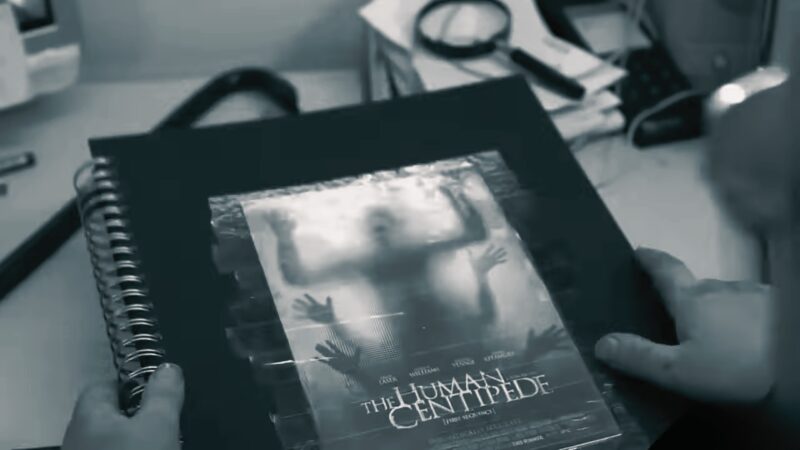
- Stream now on AMC+
The Human Centipede 2 (Full Sequence), directed by Tom Six and released in 2011, is a sequel to the already notorious “The Human Centipede.” The film follows Martin Lomax (Laurence R. Harvey), an intellectually impaired man who becomes obsessed with the first film and decides to create his own “centipede.”
Known for its extreme and shocking scenes, The Human Centipede 2 was banned in the UK, with authorities stating that “no amount of cuts” could make the movie acceptable for exhibition. However, it was eventually released in the UK after significant editing. In New Zealand, the film remains banned due to its graphic content and disturbing themes.
3. I Spit On Your Grave (1978): Banned in Ireland, Norway, Iceland, and Germany
- Stream now on Roku
“I Spit On Your Grave,” directed by Meir Zarchi, is a controversial revenge horror film released in 1978. The story follows Jennifer Hills (Camille Keaton), a writer from New York City, who seeks brutal revenge on the four men who raped her and left her for dead.
The film has been banned in several countries, including Ireland, Norway, Iceland, and West Germany, on the grounds that it “glorified violence against women.”
In other countries, it has been heavily edited to permit its release. In the UK, the scenes of rape focusing on Jennifer’s body were banned, leading to the release of a significantly edited version in 2011. Despite the controversy, the film remains a significant, albeit divisive, entry in the horror genre.
2. Hostel: Part II (2007): Banned in Germany and New Zealand
- Release Date: June 8, 2007
- Director: Eli Roth
- Cast: Bijou Phillips, Vera Jordanova, Roger Bart, Richard Burgi, Lauren German, Heather Matarazzo
- Runtime: 94 minutes
- Stream now on Roku
“Hostel: Part II,” directed by Eli Roth and released in 2007, follows the gruesome narrative established in the first film. The plot centers on three American female art students in Rome who are lured into traveling to Slovakia, only to be kidnapped by the Elite Hunting Club, a facility where wealthy clients pay to torture and kill people.
The movie was banned from theatrical release in several countries, including Germany and New Zealand, due to its explicit and graphic scenes of torture. Additionally, in 2007, UK politicians argued that possessing images from the film could potentially be considered illegal (via TheyWorkForYou).
Despite its controversy, “Hostel: Part II” remains accessible for streaming on platforms like Roku.
1. Onibaba (1964): Banned in the UK
- Stream now on Max
“Onibaba,” written and directed by Kaneto Shindo, is a period horror film set in feudal Japan. The story revolves around two women—a mother and her daughter-in-law—who survive by deceiving and killing soldiers to steal their weapons and armor. The film was banned in the UK due to its explicit sexuality, violence, and morally ambiguous plot.
Interestingly, modern spine-chilling horror movies releasing this year continue to draw inspiration from classic films like “Onibaba,” demonstrating the genre’s lasting impact.
Despite this, “Onibaba” has garnered a cult following, praised for its allegorical exploration of human desire’s inherent destructiveness, inspired by Buddhist themes. Both fans and critics agree that “Onibaba” is an unapologetically disturbing and highly influential work in the Japanese horror genre.

